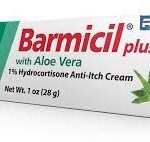Why Was Tri-Luma Taken Off The Market?

Tri-Luma cream is a combination medication made by Galderma Laboratories and used for the short-term (8-week) treatment of dark spots caused by moderate-to-severe facial melasma. Melasma is usually caused by hormone changes that happen when you are pregnant or taking medications that affect your hormones, such as birth control or estrogen replacement. It can also happen for some people when they’ve been exposed to the sun.
Tri-Luma cream contains the following active ingredient Hydroquinone 4%, fluocinolone acetonide 0.01%, tretinoin 0.05%; cream; contains sulfites, parabens.
After achieving control with Tri-Luma Cream, some patients may be managed with other treatments instead of triple therapy with Tri-Luma Cream. Because melasma usually recurs upon discontinuation of Tri-Luma Cream, patients need to avoid sunlight exposure, use sunscreen with appropriate SPF, wear protective clothing, and change to non-hormonal forms of birth control, if hormonal methods are used.
In clinical trials used to support the use of Tri-Luma Cream in the treatment of melasma, patients were instructed to avoid sunlight exposure to the face, wear protective clothing and use a sunscreen with SPF 30 each day. They were to apply the study medication each night, after washing their face with a mild soapless cleanser.
The safety and efficacy of Tri-Luma Cream in patients of skin types V and VI have not been studied. Excessive bleaching resulting in undesirable cosmetic effects in patients with darker skin cannot be excluded.
The safety and efficacy of Tri-Luma Cream in the treatment of hyperpigmentation conditions other than melasma of the face have not been studied. Because pregnant and lactating women were excluded from, and women of childbearing potential had to use birth control measures in the clinical trials, the safety and efficacy of Tri-Luma Cream in pregnant women and nursing mothers have not been established.
Tri-Luma cream controversy
Galderma Laboratories the makers of Tri-Luma received an FDA warning letter in august 2009 following the promotion of off-label use of Tri-Luma cream. According to the FDA letter, the visual aids of Galderma Laboratories recommend or suggest uses for Tri-Luma that have not been approved by FDA, and thus create new “intended uses” for the drug for which the product lacks adequate directions, broaden the indication for Tri-Luma, and omit and minimize important risk information for the drug.
The visual aids also contain unsubstantiated claims that significantly overstate the efficacy of TriLuma. Thus, the promotional materials misbrand the drug in violation of the Federal Food, Drug, and Cosmetic Act (Act). Furthermore, the FDA stated that the visual aids were also disseminated with an unapproved version of the product labeling (unapproved PI) instead of the required FDA-approved product labeling (approved PI), in violation of the Act.
The Division of Drug Marketing, Advertising, and Communications (DDMAC) of the FDA requested that Galderma immediately cease the dissemination of the violative promotional materials for Tri-Luma Cream and the unapproved product labeling.
Why was Tri-Luma taken off the market?
Following the passage of the Coronavirus Aid, Relief, and Economic Security (CARES) Act new regulations and limitations to the sale of over-the-counter (OTC) drugs containing hydroquinone came into effect.
Tri-Luma cream contains 4% hydroquinone and all OTC products containing hydroquinone had to be removed from the market by Sept. 23, 2020. Currently, products that contain hydroquinone must be approved by the U.S. Food & Drug Administration through the new drug application process.
Under 21 C.F. R. Part 330, hydroquinone and other non-prescription drugs that are not described in specified provisions are deemed new drugs, misbranded, and must be subject to a new drug application. This change is the result of a loophole in the law that has implicated hydroquinone and by extension Tri-Luma cream.
The FDA had previously proposed restrictions on products containing hydroquinone due to reported adverse effects and concerns about possible carcinogenicity and a link to ochronosis, the intention was to impose an outright ban on lower-strength (2%) over-the-counter products.





